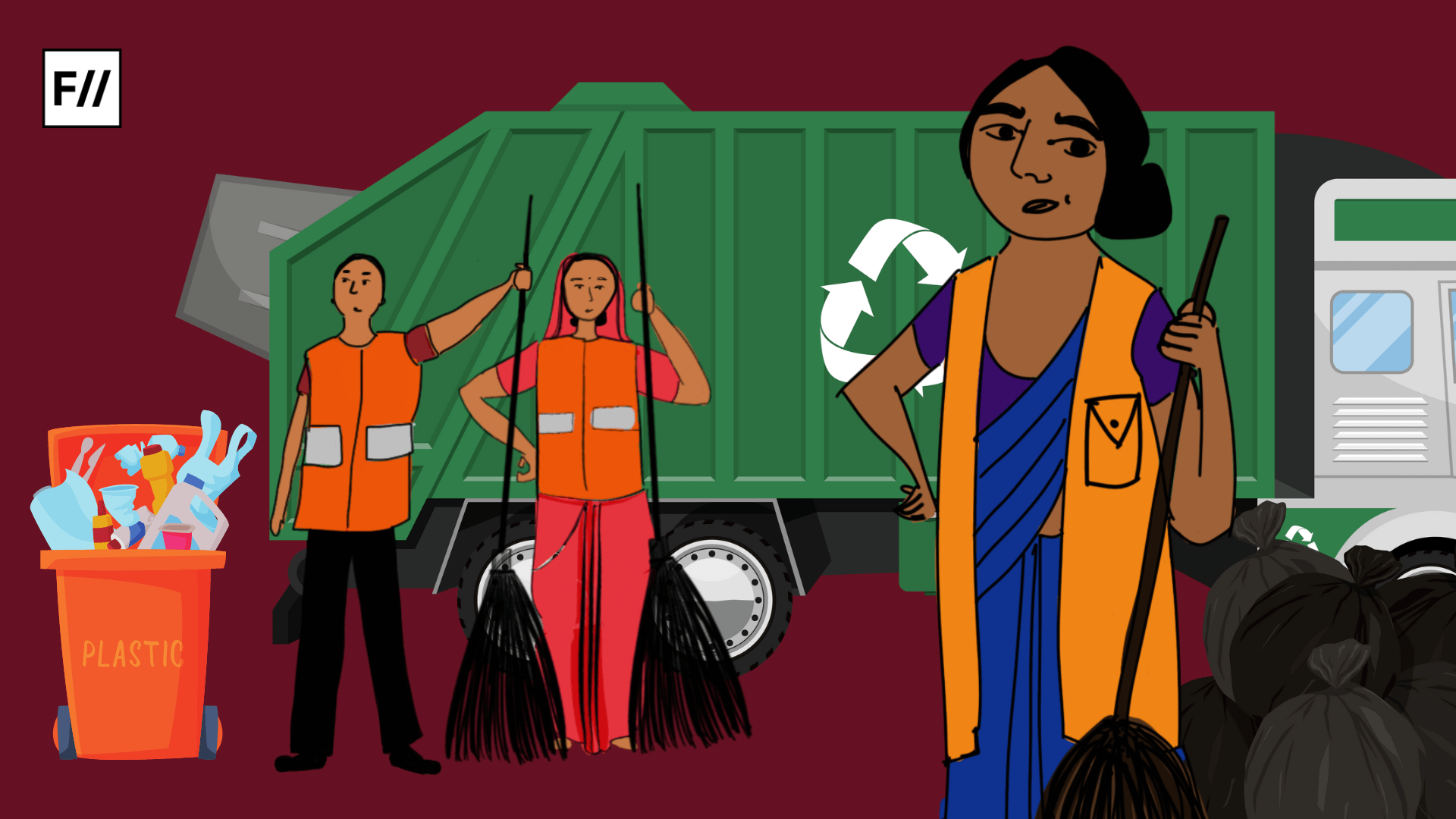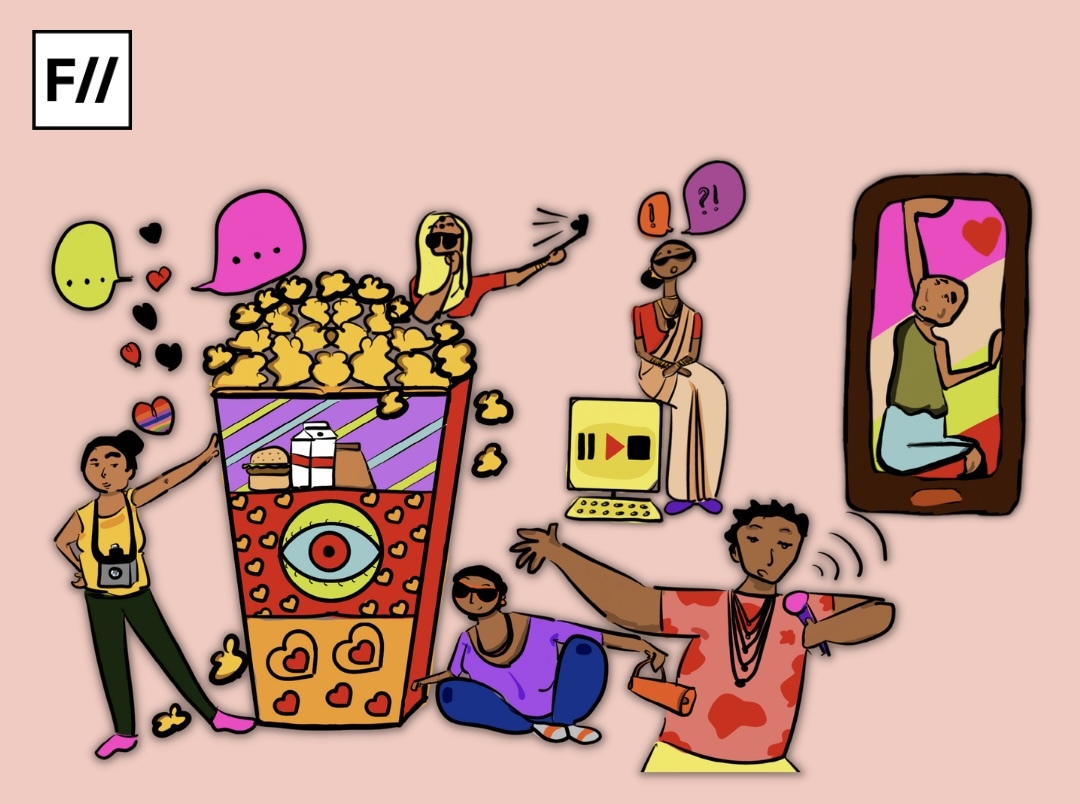Sanitation workers were on the frontline during Covid-19 and the backbone of the waste management system. During the time of Covid-19, the abysmal conditions of the sanitation workers got a spotlight. It was observed that they were working without any social security or safety gear. The delay in salary is quite usual and this made the plight of sanitation workers worse across the country.
“Different governments have come and gone but the condition of pourakarmikas has remained the same. There is no facility to drinking water, access the toilets, safety equipment and they have to work in inhumane conditions.“
KV Oblesh (Convener of Karnataka Safaikaramchari Kaval Samiti)
Bruhat Bengaluru Mahanagara Palike (BBMP) hires permanent pourakarmikas (contractual or permanent workers) whereas contract workers gets a job at the mercy of private contractors.
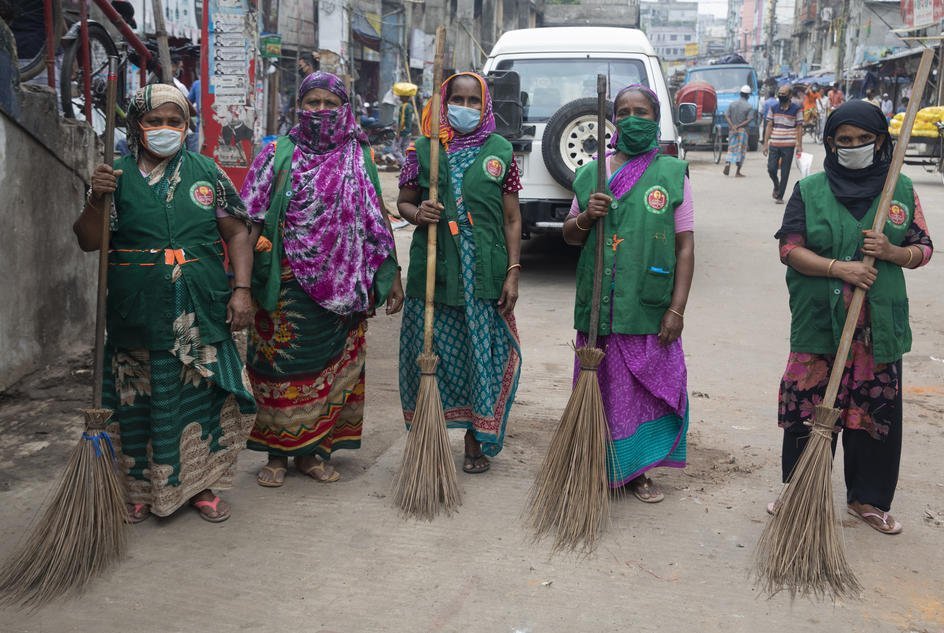
Recently, there was a strike by sanitation workers demanding permanent jobs and better working conditions. The highlighted problem was that the sanitation workers are employed on a contract basis with a monthly salary of ₹14,000. Along with it, in a conversation with KV Oblesh (Convenor of Karnataka Safaikaramchari Kaval Samiti) says, “Different governments have come and gone but the condition of pourakarmikas has remained the same. There is no facility to drinking water, access the toilets, safety equipment and they have to work in inhumane conditions.“
Also read: Caste And Gender In Paid Domestic Work In India
Mansoor (DWCC worker) says, “Contractual workers gets salary of ₹1400 which is good for nothing to survive in the lavish city of Bangalore. The amount of salary is so low that they cannot even think of buying a notebook for their children and forget about providing them with education. It is a situation where contractual workers working for decades are still not able to support their family. On the other hand, permanent employees get a fixed salary of ₹33000-40000. But there is the issue of ‘unjustified’ deductions from salaries.”
Sanitation workers are working without proper holidays or leave and for the entire week, basic safety equipment and safety gear are not provided to them, making them susceptible to various health hazards both physical and mental health, moreover, no social security benefits are provided to them.
In 2017, Congress government introduced the Special Recruitment Rules for Pourakarmikas, bringing in the direct payment system by removing the contract system. According to the direct payment system, pourakarmikas were the only ones sweeping the streets. Mansoor says, “The workers involved in solid waste management, truck drivers, cleaning drains, garbage collectors, helpers, and loaders are excluded.”
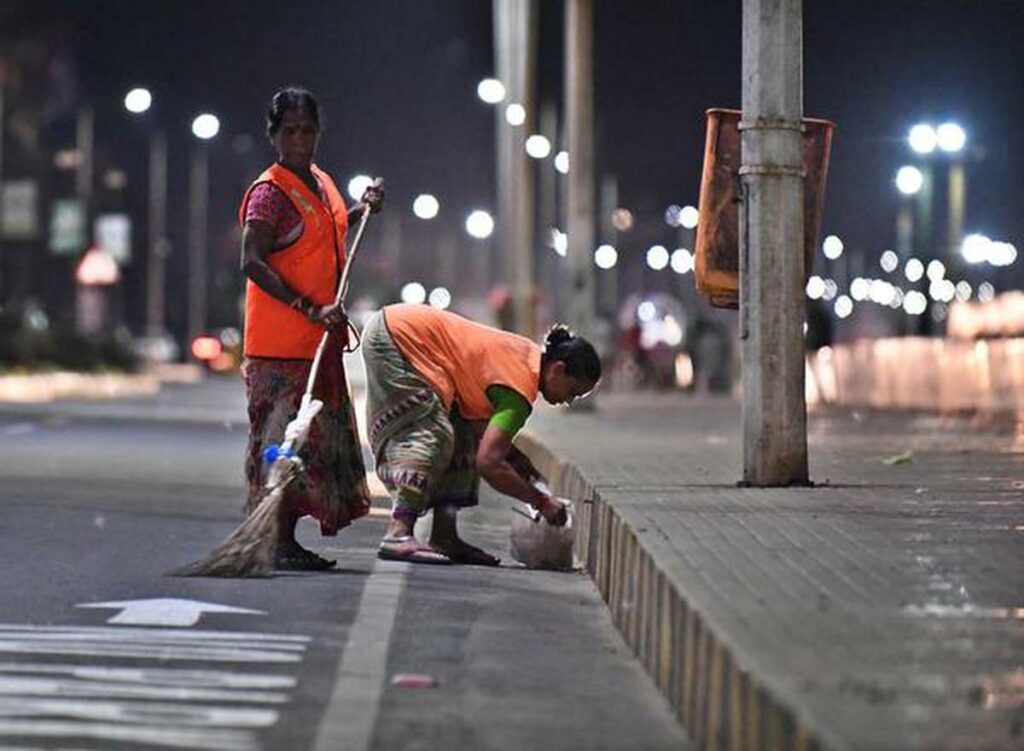
Whereas on record there are 41,373 sanitation workers in the state—12,387 of them are loaders or cleaners, and 752 of them are underground drainage helpers. Only 26,349 pourakarmikas are under the direct payment system. Of these sanitation workers, 16,516 work in the Bengaluru corporation. As many as 11,916 loaders and cleaners continue to be contractual employees, with 10,200 of them working for the corporation.
Further down the direct payment system, Urban Local Body directly pays the wages to the employed workers. Regardless of working for most of their life, they are paid merely ₹14000 without any benefits. There is no assurance of pension for their retirement and they are compelled to work in unsafe conditions without basic facilities. It has been five years since the regularisation order on the employment of pourakarmikas. But the government has had deaf ears to the basic demands of the workers such as permanent jobs and dignified working conditions.
They are frequently forced to work in hazardous situations that endanger not just their own lives but also the lives of their families. This is due to the fact that they have to clean wet waste, food waste, and other forms of garbage without the required safety gear, which could cause infections.
According to the state figures by the Karnataka Safai Karamchari Commission, workers are categorised as direct payment workers, outsourced workers, permanent workers, daily wage workers, and contractual workers. Sanitation workers are working without proper holidays or leave and for the entire week, basic safety equipment and safety gear are not provided to them, making them susceptible to various health hazards both physical and mental health, moreover, no social security benefits are provided to them.
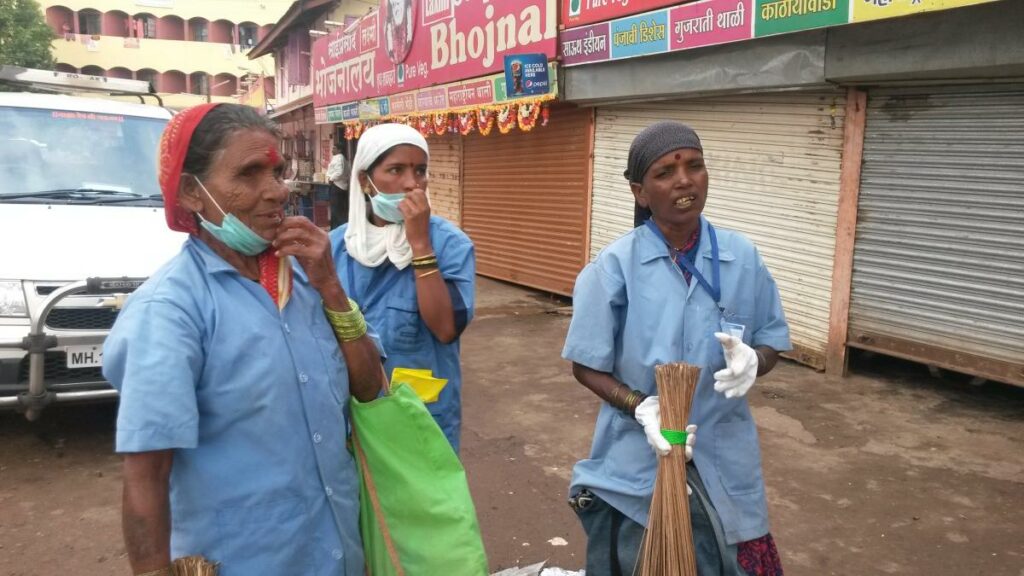
Permanent workers are in a better position as they have a voice when it comes to negotiation, better security in receiving the payment although there is a delay and also better salary. According to Contract Labor (Regulation and Abolition) Act of 1971, contractors are required to make sure that pourakarmikas have access to basic amenities such as restrooms, drinking water, washing facilities, and canteens. The availability of uniforms and safety equipments for all pourakarmikas is also specified in a directive issued by the Government of Karnataka that was passed on 4th August, 2016. The government gives contractors 20% maintenance fee for the acquisition of safety gear and other necessities.
Also read: Manual Scavenging: Strict Convictions Are Imperative To Ensure Dignity Of Labourers
Similarly, the first National Safai Karmachari Commission report (1994–1995) says that only basic tools and equipments are given to people with disabilities and that in the absence of contemporary tools or safety devices, pourakarmikas are exposed to considerable risks. They are frequently forced to work in hazardous situations that endanger not just their own lives but also the lives of their families. This is due to the fact that they have to clean wet waste, food waste, and other forms of garbage without the required safety gear, which could cause infections.
Mansoor says, “There have been instances of biometrics not being able to detect the fingerprints of the workers due to the damage of the skin exposed to hazardous substances on daily basis without adequate safety gear. Owing to this, their attendance was not marked leading to them not being paid.” Meena says, “They get sick due the work and their children get sick due to them, as the amount of salary is not sufficient to provide proper nutrition to their children.“
Meanwhile, pourakarmikas are predominantly from the Scheduled Castes and Scheduled Tribes, who are structurally oppressed and deprived of social dignity, education, and proper housing. Sanitation work is closely related to the caste system. The Brahminical social order allotted the most ‘polluting’ work such as removing human excreta to Shudras and untouchables, now referred as the Dalit Community. The majority of these employees are from the Dalit Madiga community in Karnataka. Most of them are from Scheduled Caste (SCs). However, Schedule Tribe (ST) tribes, who also constitute a significant portion of the workforce. It is evident that there is a modernization of the institutionalized caste system with its association of purity and pollution.
Also read: Love, Caste And Gender: How Women Become Unpaid Labourers
The condition of sanitation workers, which is a product of the caste system, predominant in the Dalit community has not been better for ages and they continue to live their life in oppression. The inhumane conditions of working, no adequate safety gear, social security, basic facility, and delayed income put them in a vicious cycle of oppression. Along with this, it violates the Fundamental Rights guaranteed in Article 21 enshrined in the Constitution of India. With it, I will leave you to ponder over the question of whether the caste system exists in our modern country or not.
Priya Chaudhary is a fourth-year law student at the National Law School of India University, Bengaluru. Her core research lies in the intersectionality of caste and gender. She is interested in politics, the economy, and technology as well. Follow her on Instagram and Linkedin.
